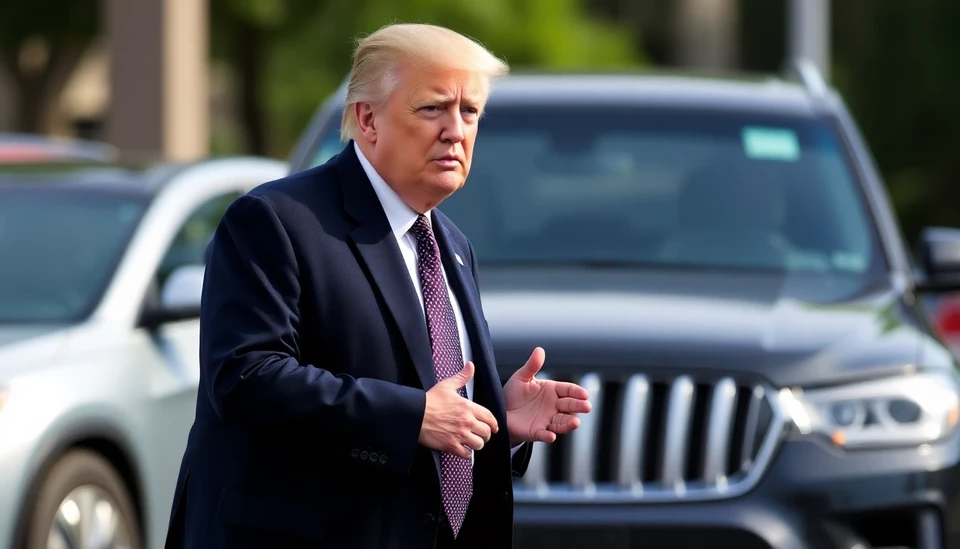
In a bold move that could reshape the U.S. automotive landscape, former President Donald Trump is advocating for significant tariffs on imported vehicles and auto parts. This initiative, which he claims could generate billions in revenue, is framed as a strategic maneuver to support American manufacturers and curb trade imbalances, particularly with countries like Japan and South Korea.
According to sources close to Trump’s advisory team, he sees this proposed tariff as a necessary step to stifle what he describes as unfair trade practices impacting American jobs. The rumored tariffs could target approximately $240 billion worth of goods, strategically aimed at generating leverage in ongoing international trade discussions.
Trump’s assertion is built on the argument that existing trade policies have allowed foreign nations to exploit the U.S. market while domestic manufacturers struggle to compete. If enacted, these tariffs would represent one of the largest trade actions the U.S. government has considered in recent years, significantly altering the pricing dynamics of imported vehicles and potentially inflating costs for American consumers.
Industry responses have been mixed, with some domestic manufacturers supporting the move for its potential to boost local production, while others express concern about retaliatory measures that could harm global supply chains. The broader implications for trade relationships, particularly with key U.S. allies, could lead to increased tensions in an already complex international trade ecosystem.
Despite the potential economic fallout, Trump’s supporters believe that strong measures are necessary to hold foreign competitors accountable and rejuvenate the American manufacturing sector. As the dialogue around the proposal intensifies, experts remain divided over the long-term impact these tariffs might have on both domestic prices and international relations.
With the 2024 presidential election on the horizon, this announcement could also be seen as a tactical move within Trump’s campaign strategy, appealing to his base by focusing on economic nationalism and job protection measures.
As discussions progress, stakeholders from various sectors are preparing for possible outcomes, including increased lobbying efforts against the tariffs and public campaigns to raise awareness of the potential consequences for consumers. The next steps will likely depend on the unfolding political landscape, including reactions from both the Biden administration and potential Republican contenders for the presidency.
Overall, this proposal adds a new dimension to the ongoing trade conversation in the U.S., challenging the status quo and prompting a reevaluation of America’s role in the global automotive market.
#TrumpTariffs #AutoIndustry #TradePolicy #ManufacturingJobs #Economy #USTrade #CarImports #GlobalTrade #2024Election
Author: Victoria Adams




